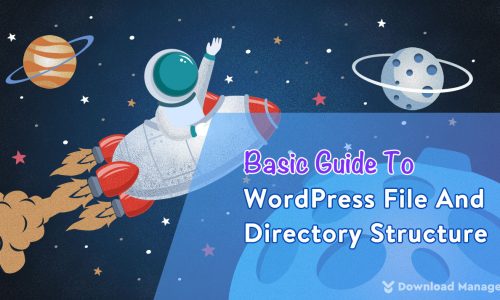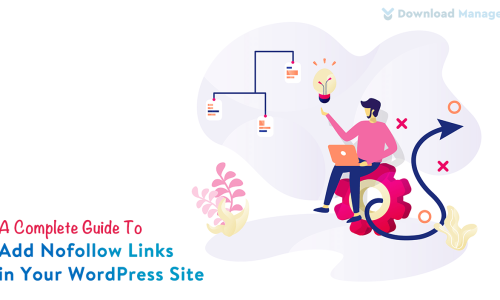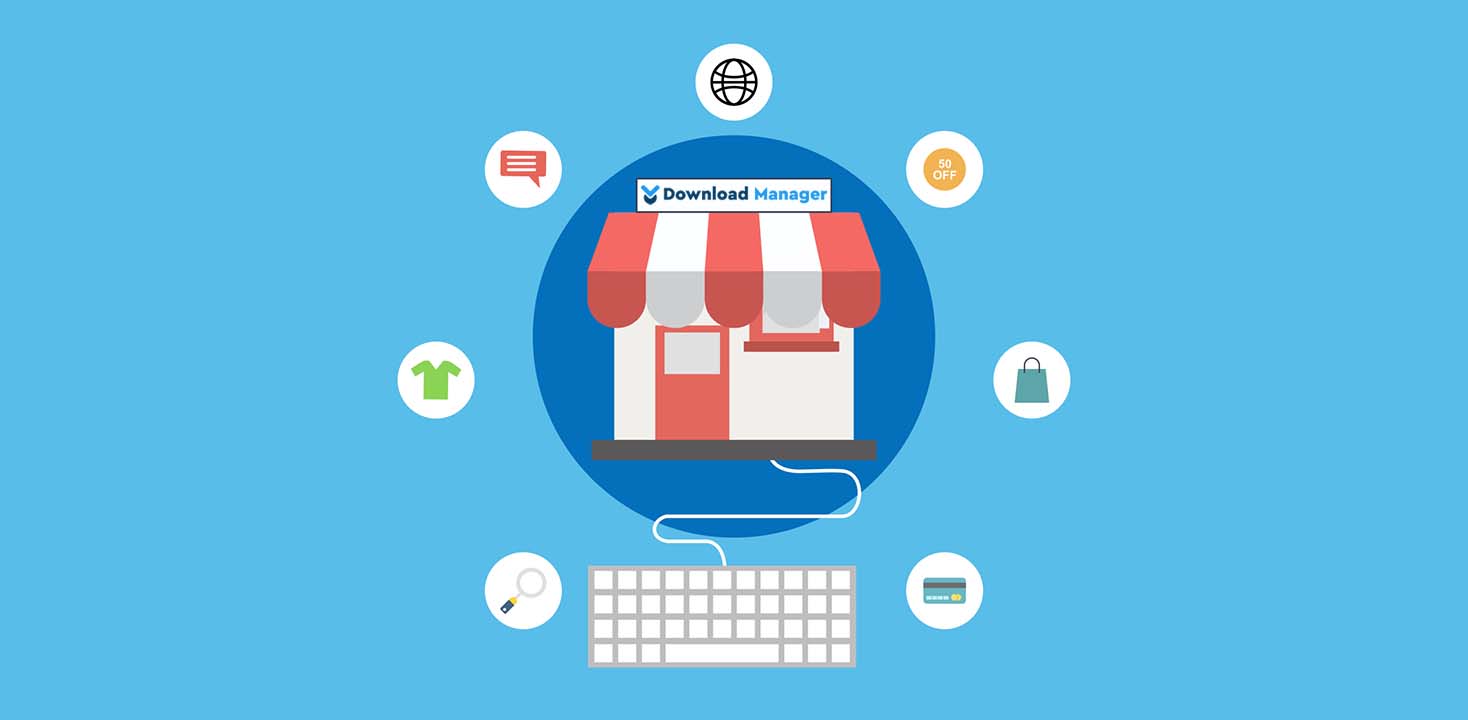
Essential Features You Should Consider In An E-commerce Platform
To underpin your business strategy, it’s essential to have the right e-commerce platform. But with so many WordPress e-commerce plugin options available, how can you tell which one is right for your business? Or do you know, what are the most fundamental features you should consider before choosing an e-commerce platform?
Throughout this article, we’ll cover everything you need to know about e-commerce platforms. We’ll go over what an e-commerce platform is and why you need to choose the best e-commerce platform and later we’ll offer some essential features to consider before choosing an e-commerce platform.
What is an E-commerce Platform?
Like all other businesses, online businesses need additional software to manage backend functions such as accounting, order management, inventory management, and customer service. An e-commerce platform is an end-to-end software solution that can be used to centralize the operations every business needs to implement to sell its products and services online.
This type of service encompasses e-commerce website builders, accounting and inventory management systems, as well as customer service infrastructure. With an e-commerce platform, businesses can create an attractive online store without the need to have web development skills.
Why Do You Need to Choose The Best E-commerce Platform?
Building an e-commerce business is more than just simply putting up your product listings on the web. It is far more complicated than you actually imagine. Just like running a physical retail, the same level of strategic thinking and planning also goes into building and running your e-commerce business.
The opportunities afforded by the top e-commerce platforms mean you can create the perfect storefront for your business on a relatively modest budget. Make a wise and balanced choice by keeping these four essential factors in mind:
- Growth: You need the ability to expand your offerings and services quickly.
- Running costs: This includes the cost of building your e-commerce platform and ongoing development and maintenance costs.
- Customer engagement: How you can control how your customers interact with your business.
- Objectives: The right e-commerce platform will enable you to deliver the service you set out to achieve
Features to Consider in an E-commerce Platform:
Now, that we know the importance of having a management platform for our e-commerce website, it is time to think about the specifications that it should have to be efficient and useful to us.
We have listed down the crucial eight features you must consider while selecting the perfect platform for your e-commerce shop. The following features will help you separate the good from the bad when it comes to WordPress e-commerce plugins:
1. Cost:
First and foremost, entrepreneurs need to decide the amount of investment they can put into building an e-commerce website. Whether you’re a small business just getting started or an already established brick & mortar business moving online, you need to know exactly what you’ll be paying.
Some platforms come with standard monthly fees, others offer flat rates, some charge per transaction, and some e-commerce platforms even require additional costs for app subscriptions. Depending on the type of platform the costs may vary. Try to weigh the pros and cons of each to get the best for your budget.
Don’t chase after lower prices at the expense of useful features. Prepare a list of all CMS platforms that offer these as core functionalities. Then, compare those options that fit your budget to see which one works best for you. You should carefully study everything the platform offers to understand what you are paying for and make your choice based on that. Price can depend on multiple factors like design, setup configuration, custom development, organizing product pages, adding payment forms, maintenance, tracking inventory, and so on.
Do not compromise on any core features due to expense. It is advisable to test features for usability before investing in them. Before subscribing sign up for a free trial or a demo if you can to get a true taste of the CMS platform in question.
2. SEO Friendliness:
You are absolutely wrong if you think that you don’t need SEO because you have an online shopping website. But the truth is Search Engine Optimization (SEO) is one of the most critical factors in ensuring your store’s success. In fact, it can be highly beneficial to have your store rank high in search results.
Organic SEO takes time to build and the task is much easier when the platform you choose has best practices built-in and makes keeping up with changes in Google’s algorithms a priority. Not all e-commerce platforms are created equal when it comes to SEO, so you must check to see what SEO capabilities are included. If your platform is SEO friendly, when shoppers will look for a particular product or service—like what your store is selling, it will be easy for them to find your business.
3. Integrations:
Another critical factor to consider when evaluating e-commerce platforms is integration. Although most platforms offer significant functionality in themselves, integrations can dramatically improve their usefulness. Those additional tools can help run your business smoother and easier.
You’ll find a popular bunch of essential integrations that are common to all the platforms. But not all platforms offer every integration, so be sure you understand your business requirements to assess the available features and functions properly. Here are some of the most popular plugins to look for:
- Marketing
- Payment
- Social Networking
- Cloud Storage
- Email Marketing
- Private Massage
Remember another thing, your platform of choice should be the one that has an active community and supports integrations relevant to your business.
4. Payment Method:
Making it simple for customers to pay for your goods and services entails providing multiple options. This means your store has to be connected with a reliable, secure e-commerce payment gateway, a dedicated processor that safely moves funds from customers’ bank accounts into your own.
Many platforms have their own payment gateways, they may not support as many options for payments handled via third-party processors and digital wallets as you might like. Some e-commerce platforms don’t provide the capability for paying via third-party vendors. This could be a tremendous inconvenience for your customers, and it might send them to a competitor.
Before you even open your e-commerce platform for business, decide on which payment forms you will accept, and keep this in mind when you’re searching for an appropriate platform. Don’t take this risk; decide which forms of payment you’ll accept first and remember this when you’re looking at the different software.
5. Security:
In today’s digital age, security is one of the biggest concerns among consumers. No customer wants to enter their financial and personal details to a website that they know is not secure. And financial operations, naturally, are among those most often targeted by hackers.
Because you’re handling so much sensitive data, data security should be your top priority. You must take a critical look at the security credentials of the e-commerce platform you’re considering for current needs and future growth.
So, make sure to check if the platform you consider supports HTTPS/SSL protocols and is PCI compliant. Although these are more or less the industry standards by now, it always pays to be extra careful when it comes to matters of security.
6. Customer Support:
A key aspect of any business is its customer service. Never underestimate the importance of good customer support unless you have a great IT team to take care of glitches.
It is essential to know how an e-commerce platform handles customer support requests under different circumstances; unusual hours, specific web traffic issues, average waiting times, etc. Software outages and server downtimes can occur anytime. This is an important feature as the revenue loss will be more significant if your e-commerce store is down, even for a few hours.
Some e-commerce CMS platforms do not provide live chat or phone support service if you are not upgraded to their most expensive package. Having someone to call at any time to help you get things up and running again is a huge factor when you’re looking at e-commerce platforms. Take a look at each platform’s customer service—are they available 24/7? How are you able to reach them? and what does each cost? Think about these questions and make sure you ask them before you decide on your platform.
7. Scalability:
Nobody starts an e-commerce business to keep the business small. Every business owner hopes to become successful in a niche and expand its operation. So you should look forward to growth and pick a scalable platform. Sometimes you may face occasional spikes in traffic during peak seasons.
The platform you opt for should be flexible enough to offer you suitable plans for building and operating a store while you’re in rapid growth mode. The right plugin would perform even under pressure and support dynamic features effortlessly. They should enable you to add products as you grow your site to keep up with new trends. Staging functionality will help you work in the background to see how your store would look post-changes without impacting the live performance of your website.
You cannot judge the scalability of an e-commerce platform by only its mere capacity to handle a large amount of traffic. It must also possess the ability to integrate certain APIs, which businesses use to manage large-scale implementations. Always ensure that your chosen platform can upscale the features as per growing needs and demands.
8. Mobile Friendliness:
Since the users of mobile are increasing, a mobile-friendly e-commerce website is a must for every e-commerce business. Almost 60% of searches are done by mobile devices, and most of them result to purchase on mobile devices. When searching for an e-commerce platform, be sure it allows customers easy access to your website. The easier a customer can interact with your brand, the easier it’ll be to make a sale. If the website does not have features to be optimized for mobile, then there are high chances that your sales will suffer.
Our Recommended E-commerce Platform:
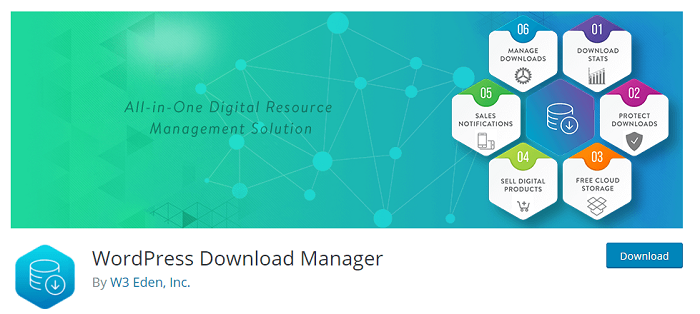
Till now we talked about the features you should consider in an e-commerce platform. Now, it’s time to introduce the best e-commerce platform according to us and it’s none other than WordPress Download Manager.
WordPress Download Manager is a digital product selling plugins packed with huge add-on collections. With its free Premium Package WordPress Digital Store Solution add-on, you can create your own store with just one click.
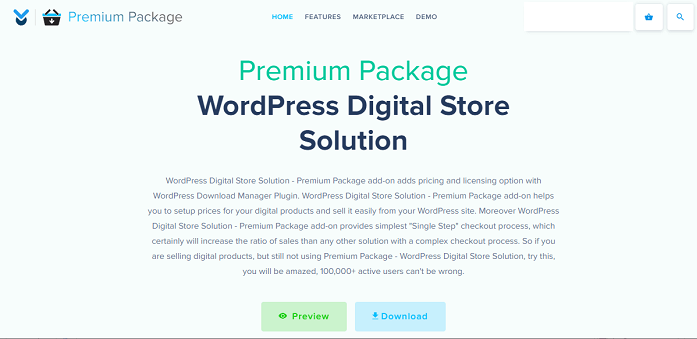
Premium Package WordPress Digital Store Solution add-on, has features like Shopping Cart, Order & Invoice Management, Sales Report, Coupon Management, Role-Based Discount, Easy Tax Option, Simplest Checkout Option, Automatic Order Renew / Recurring Payment, Automatic Order Expiration, Save & Email Cart and so on. And if you want more features, you have a huge collection of e-commerce add-ons.
Another benefit of using Download Manager is they provide incredible support, whether you are a pro version user or a free user. To know more about Download Manager visit our website and try the WordPress Download Manager demo site.
Conclusion:
Though it may not seem important, choosing the right e-commerce plugin is very crucial from thousands of plugins in the market. The right plugin can decide the fate of your e-commerce business. Whether the business will be successful or fail due to issues that could not be prevented. Having an e-commerce platform will increase traffic to your online store and reach a greater audience. It also improves the entire sales process and increases the trust in your brand to boot.
The right e-commerce platform is the one that has the features and functions you need most, with the flexibility to customize the experience to win and keep customers and sharpen your competitive edge. You can compare e-commerce platforms using dozens of factors but these eight are probably the most important and should be taken into consideration above everything else. You can also do a basic litmus test for determining plugin quality by checking for frequent updates, good reviews, support, and whether it is compatible with the existing WordPress configuration. So, when it comes time to make a final decision, do your research and listen to your gut.
That’s all for today! What other features do you look for in an e-commerce platform? Let us know your thoughts in the comment section below.
Also if you find this article helpful, visit our Blog page, subscribe to our YouTube channel, and follow our Facebook page.


